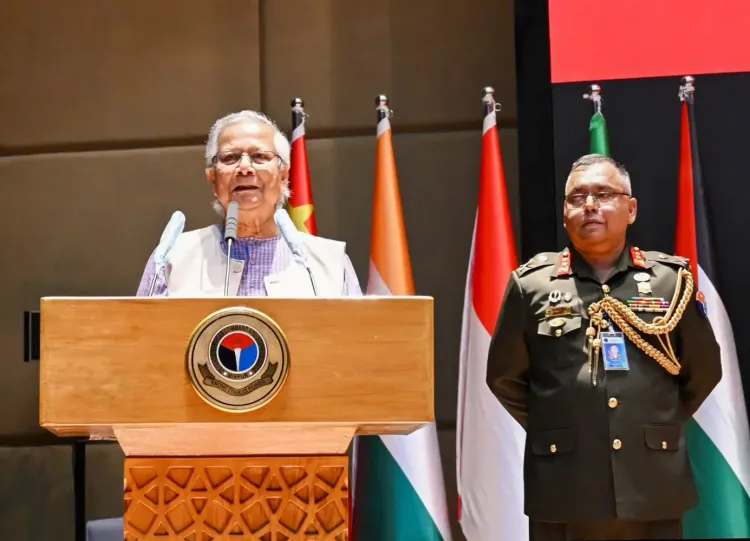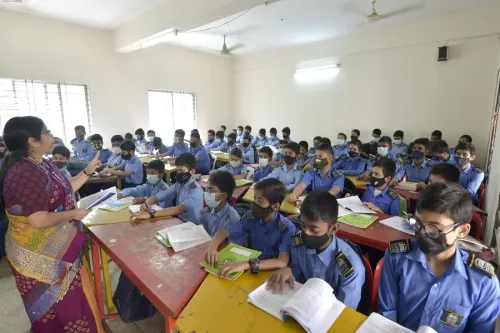Is Bangladesh Facing a Deepening Economic Crisis Due to Corruption?

Synopsis
Key Takeaways
- Bangladesh faces a multifaceted economic crisis.
- Corruption is a significant barrier to development.
- Investment and job creation have stalled.
- The implementation of the Annual Development Programme is at a decade low.
- External debt is rapidly increasing and poses a risk.
Dhaka, Nov 25 (NationPress) The Awami League party of Bangladesh cautioned on Tuesday that the nation is grappling with a profound, multifaceted crisis characterized by escalating national debt, stagnant investments, and halted development initiatives.
Beneath the illusion of recent economic growth, the party indicated that a harsh reality is surfacing, with administrative inefficiency and a pervasive culture of corruption under the interim government led by Mohammad Yunus undermining the country’s economic advancements.
As the debt rises, the party pointed out that the essential engines for future growth—investment and job creation—have come to a standstill. Political instability, banking sector irregularities, a severe dollar shortage, and bureaucratic obstacles have effectively halted new investments. Factories face challenges in importing raw materials and securing financing, resulting in diminished production levels. Instead of job creation, the labor market is experiencing an increase in layoffs, contracting economic growth,” stated the Awami League.
The party highlighted that frustrated entrepreneurs expressed that corruption has now become a more daunting obstacle than policy instability, with the pervasive cycle of ‘duties-bribes-approvals’ establishing itself as the default barrier to entry and expansion.
In emphasizing the escalating economic crisis in Bangladesh, the Awami League noted that the fallout is most evident in the development sector, where government expenditure under the interim administration has significantly decreased.
The execution of the Annual Development Programme (ADP) has plummeted to below 68 percent—the lowest in a decade—following a governmental transition and subsequent evaluations, the party asserted.
The Awami League accused the ongoing development projects of being immobilized by a toxic mix of administrative delays and ineffective management, with a widespread “commission culture” fueling corruption, while poor decision-making and complex fund disbursement further exacerbate the crisis.
“When development stagnates, economists warn that debt transitions from being an investment tool to a burdensome liability for the future. This is exactly the path Bangladesh is treading, where escalating debt is not converting into financial growth,” the party underscored.
The Awami League pointed out that the surge in the nation's external debt has been propelled by cost overruns, irregularities, and delays in mega-projects such as the Rooppur Nuclear Power Plant, Metro Rail, and the Karnaphuli Tunnel. The Asian Development Bank (ADB) has also noted that Bangladesh holds the title for the fastest-growing external debt in South Asia.
“The risk of debt is projected to escalate sharply from the fiscal year 2026–27 onward, when substantial repayment installments for these major projects commence, exerting immense pressure on national finances. This alarming trend has led the International Monetary Fund (IMF) to categorize Bangladesh’s external debt as moderately risky,” the party conveyed.









